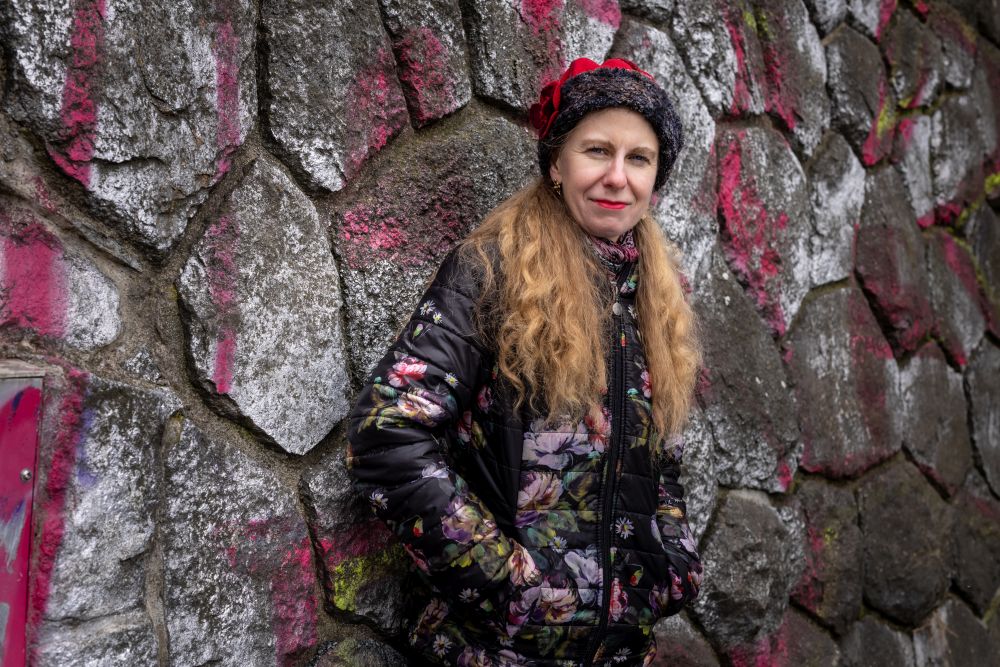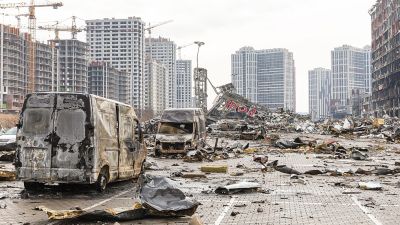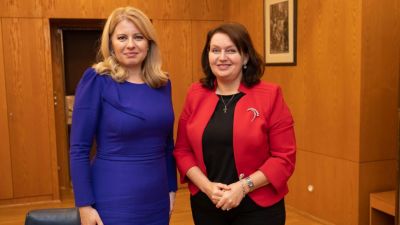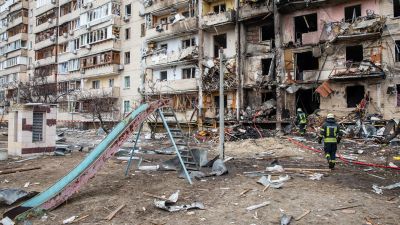Thousands of dead and wounded, millions of people in exile, a crippled economy, destroyed infrastructure, a dysfunctional health system, closed or bombed out schools, environmental damage... The war Russia unleashed in Ukraine more than a year ago has affected the country immeasurably and it will take generations to repair the damage and for recovery to be complete. Professor Veronika Bílková of the Faculty of Law of Charles University, a specialist in international humanitarian law, says the task will be monumental. She saw war-torn Ukraine as a member of a special mission of the Organization for Security and Cooperation in Europe (OSCE).
In 2022, you became the first ever woman professor of international law in the Czech Republic. What explains the fact that for a long time no female academic had attained this title? Is international law a ‘man's world’?
Public international law is a fairly inclusive discipline nowadays, I don't see a clear dominance of men or women. A lot depends on the specific field - for example, human rights law is often done by women, whereas international investment law tends to be more male, but there is no obvious disproportion anywhere. This is also true, although it may surprise some people, in the area of international humanitarian law, the so-called law of war. Rather, it is the case that the higher or further up the ladder in the field you go, the fewer women there tend to be.
While in the basic Master's degree there is parity with a slight dominance of female students, in the doctoral degree the ratio is reversed and at the associate or professorial level the dominance of men is already quite obvious. One of the reasons for this is that the criteria for habillitation and professorships traditionally assume an uninterrupted career, which women often do not have because of motherhood. Women thus progress more slowly along the academic path and do not necessarily reach the end of it.
In your Master's as well as your dissertation you focused on the issue of international humanitarian law in internal armed conflicts. In the introduction to your dissertation from 2006, you point out how this was a new and neglected topic in the Czech environment at that time. How much is this law changing with new types of conflicts?
The foundations of contemporary international humanitarian law were laid in the second half of the 19th century. The basic principles established at that time, such as the principle of distinction between civilians and combatants, the principle of proportionality, which determines the level of permissible collateral damage, or the prohibition of certain types of weapons, have not changed radically since then. What has changed, however, is the shape of the conflicts themselves. To the original inter-state clashes have been added domestic armed conflicts. In addition, wars have expanded into new environments: in addition to conventional land and naval warfare, we know about air warfare, and there is also new discussion of war in cyberspace. Technologies have changed, new weapons have appeared, such as nuclear or automatic weapons, which make it possible for a person at one end of the world to kill someone at the other end. International humanitarian law must respond to all such changes and shifts.
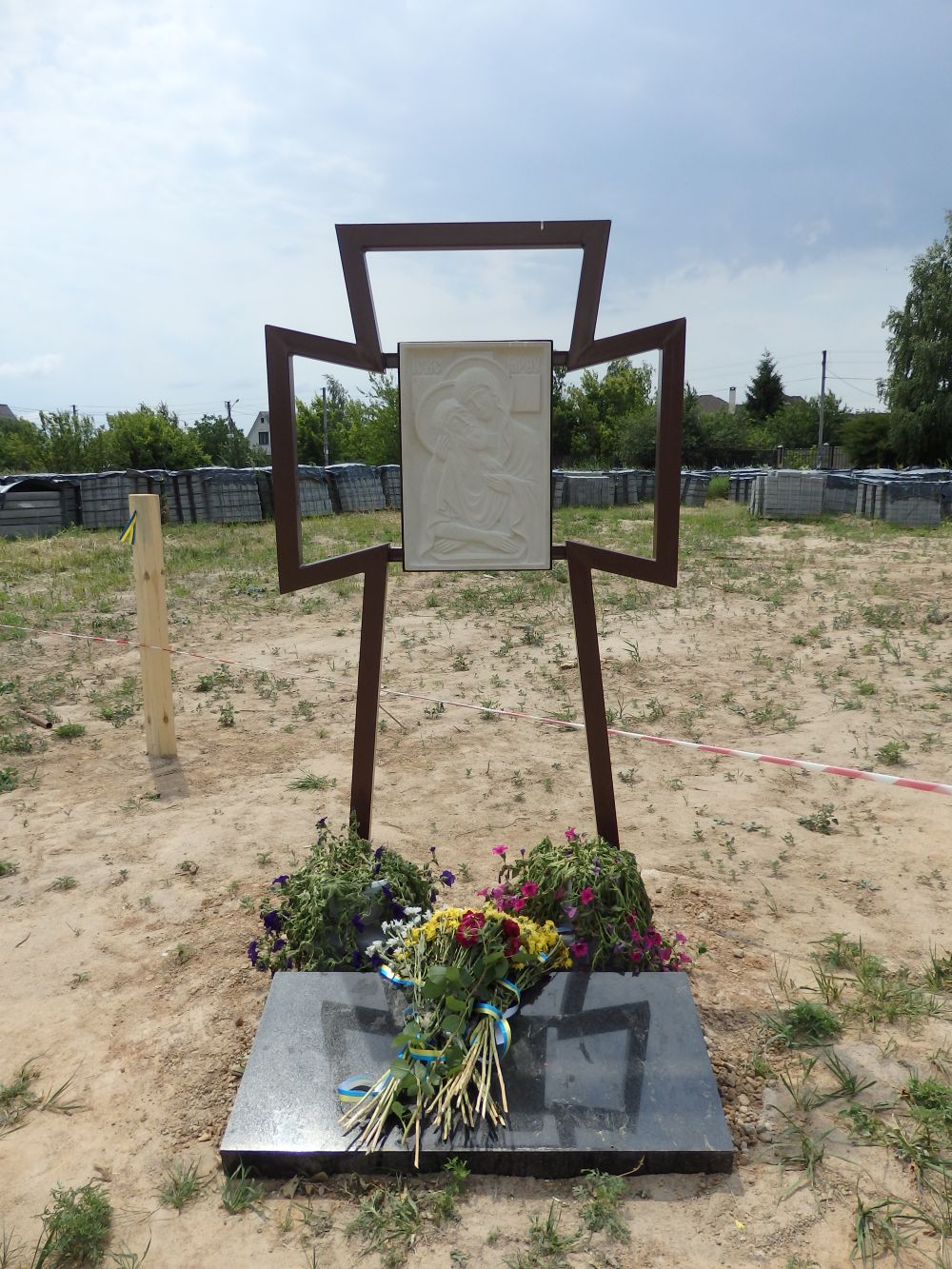 Veronika Bílková travelled to Bucha within the OSCE mission.
Veronika Bílková travelled to Bucha within the OSCE mission.
How much will the current war in Ukraine change things? Could new institutions emerge? Like the International Criminal Court did in the 1990s? Crimes committed during the wars in the countries of the former Yugoslavia or during the genocide in Rwanda were judged by ad hoc tribunals; the UN did not have a permanent court at that time.
It is too early to make an assessment. After the period of the 1990s and the first 20 years of the new century, when wars were primarily asymmetric and very often internal - usually pitting a state against a non-state actor (an insurgent or terrorist group), the war in Ukraine is a return to the classic inter-state conflict, with two states fighting each other through essentially conventional means. The set principles apply, although some new aspects are emerging, such as certain types of weapons or the huge importance of information and the use of social networks.
Personally, I believe that the war in Ukraine could play a positive role in the development of this area of law by helping to shape the rules that have been controversial for years and to which even EU states have not subscribed. However, in the context of the war in Ukraine, these states are making it clear that they consider the rules to be valid.
Which ones in particular?
For example, the rules relating to the protection of certain facilities, such as nuclear power stations. Today, the regulation is set relatively lightly. For example, fighting in the vicinity of a nuclear power plant is permitted under international humanitarian law, provided that there is no serious risk of the release of dangerous forces and the intervention of civilians. The recent fighting near the Zaporizhzhia nuclear power plant did not necessarily violate these rules, yet it has attracted much criticism, suggesting that the standard of protection for such facilities could be raised.
The same applies to the use of certain types of weapons, such as cluster munitions. Neither Russia nor Ukraine is a party to the 2008 Convention on Cluster Munitions, yet the use of these munitions by the Russian Federation raises major concerns in itself. Here, too, the standard appears to be gradually rising. There is therefore some hope that the war in Ukraine will ultimately lead to a strengthening of the regulation of international humanitarian law. It is hard to imagine that the same states that today criticise Russia for certain actions could endorse the same actions when another state commits them. By criticising Russia, states are thus tying their hands for the future, but this is undoubtedly positive.
You have been following events in Ukraine for a long time. When did your attention turn to Eastern Europe?
At the Faculty of Arts of the Charles University, I studied Belarus and its political system. I was also always interested in the Russian Federation and Ukraine. I became more closely involved in the legal environment in Ukraine and the Russian Federation through my work with the Council of Europe's European Commission for Democracy through Law, the so-called Venice Commission.
As members of the OSCE mission of experts, you and Professors Wolfgang Benedek and Marco Sassòli authored the first ever international independent analysis of what happened in Ukraine last February and March. During May and June, you and your colleagues Laura Guercio and Vasilka Sancin prepared another report for the OSCE. What were your findings?
Both reports were produced in the framework of the so-called OSCE Moscow Mechanism. The first one covers the period from the beginning of the war, from 24 February to 1 April. The second one covers the period from 1 April to 25 June. The findings were quite unsurprising. It confirmed that human rights and international humanitarian law are being violated in Ukraine and that there are indications of war crimes and crimes against humanity being committed, particularly by the Russian Federation. The greatest violations are taking place in areas that have come under direct occupation by the Russian Federation. In our reports, we have not only focused on how many people have been injured and killed or how many objects have been destroyed. We also looked at the longer-term damage that the war is doing. Children cannot go to school, hospitals and the social system are not working, the environment is being damaged. These damages may be less visible, but in the long term, they will weigh on Ukrainian society just as heavily as the direct losses. When children do not go to school for long periods of time, several million people flee abroad, millions are forced to flee within the country, the health system does not work and the environment is seriously damaged, this causes damage that can take decades to repair.
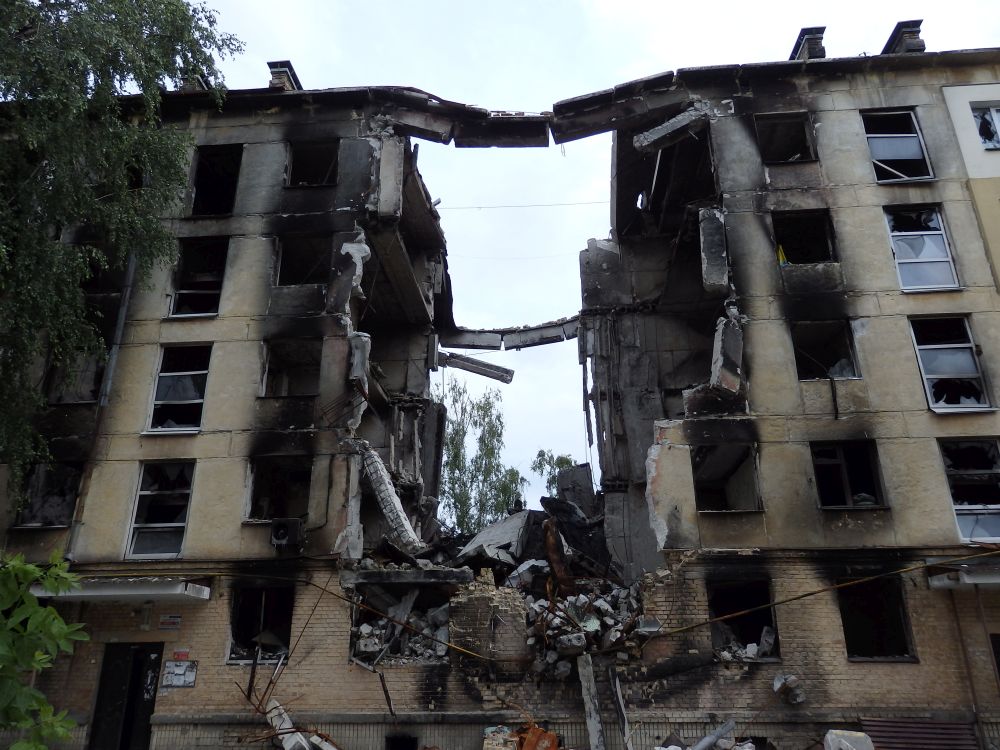
A building destroyed by shelling in Hostomel.
As part of the preparation of the OSCE report, you went to Ukraine. When and where were you?
It is important to stress that the Moscow Mechanism is supposed to be flexible and to bring OSCE member states information about what is happening on the ground in the shortest possible time, which is why the experts always have only three weeks to produce a report. This does not allow much time to visit the target country. During the preparation of the first report, a visit was not possible at all for security reasons, and during the preparation of the second report, we visited Kiev and the places in the vicinity where some of the main atrocities took place with our Italian colleague and our guides: namely Bucha, Irpin and Hostomel.
We met with witnesses of the events, with victims of the war, but also with people from the state administration and NGOs. In recent years I have been going to Kiev regularly as part of the Venice Commission missions, so it was interesting for me to see how these places have changed with the coming of the war. Before the outbreak of the war, Kiev was a classic European city where people lived day and night, where shops were open, where people walked the streets, had fun, just lived a normal life. At the time of our visit, it was a city in a state of war.
The first thing they show you when you arrive at the hotel is the shelter. You get a message on your cell phone several times a day that an air strike is imminent. Sirens are always blaring. Quite a lot of people walk around in military clothing. There's been a marked decrease in foreigners, so you get more attention than you used to. There are roadblocks set up everywhere so that if anything happens, they can be used immediately. We were in Kiev at the end of June, which was a period of relative calm; today the situation is undoubtedly much more serious.
|
According to Professor Veronika Bílková, the court acted unusually quickly in gathering evidence and drawing up the charges. “The International Criminal Court has been dealing with the situation in Ukraine for more than a year, so it is likely that during this time it has gathered a lot of relevant information and evidence. However, the sufficiency of this evidence to convict President Putin or anyone else can only be assessed by the court if it has the opportunity to deal with the case in a realistic way, that is, if at least some of the accused come before it,” she notes.
However, it will not be easy to physically bring Russian President Vladimir Putin or Maria Lvova-Belova before the Hague court. The Russian Federation is not subject to the jurisdiction of the International Criminal Court, so it has no obligations to it and does not have to extradite those prosecuted. Yet the trial cannot take place without their presence.
For Putin and the Kremlin's proxy, however, the issuance of an international arrest warrant has closed the door to the 123 countries around the world (including all the member states of the European Union) that have ratified the Rome Statute of the court. If they entered the territory of any of these countries, they would be arrested. However, Gergely Gulyas, head of the office of Hungarian Prime Minister Viktor Orban, stated publicly since that Hungary would not extradite President Putin to The Hague because the Rome Statute has not been fully incorporated into the Hungarian legal system.
|
You spoke about crimes against humanity and war crimes. Is it realistic that the perpetrators of these crimes will be brought before one of the national courts or the International Criminal Court?
Criminal proceedings are already underway. At the national level, the most active is, of course, in Ukraine, where the first convictions were handed down before the summer break. Similarly, criminal proceedings are underway at the International Criminal Court. We are often asked to what extent the proceedings will affect the highest officials of the Russian Federation. It depends on developments. If Russia were to be defeated or if the political establishment were to fall, the possibility of prosecution is significantly greater than if these people remain in power.
As an expert on the environment, can you guess how the conflict might develop?
I cannot. I'm not a military analyst. There are many unknowns at play, whether it is the situation on the battlefield or political and economic developments in the Russian Federation, Ukraine and other countries. If the most radical means were deployed, the war could end very quickly... But the frontline is not changing in any significant way now.
The belligerents seem to be stuck in a stalemate. Both Ukraine and the Russian Federation are signalling some willingness to negotiate and are trying to set the most favourable terms before it. However, negotiations must result in a compromise, otherwise it is a one-sided dictate. At the moment, neither side is willing or able, after months of fighting and losses, to retreat from the positions they hold. Unfortunately, an end of the conflict is nowhere in sight.
| Professor Veronika Bílková |
| A graduate of the Faculty of Law of Charles University and the Faculty of Arts of Charles University (political science / French) and the University of Cambridge. Her main interests are international humanitarian and international criminal law, use of force in international relations, counter-terrorism law and human rights. Since February, she is the new Head of the Department of International Law at the Faculty of Law at CU, at the same time working at the Centre for International Law of the Institute of International Relations. She represents the Czech Republic in the so-called Venice Commission of the Council of Europe, and in the past she worked at the Ministry of Defence of the Czech Republic, at the non-profit organisation People in Need and at the International Commission of Jurists, where she focused on human rights issues and the fight against terrorism, especially in the context of Central and Eastern Europe. She is the author of several books and dozens of articles published in the Czech Republic and abroad. |


